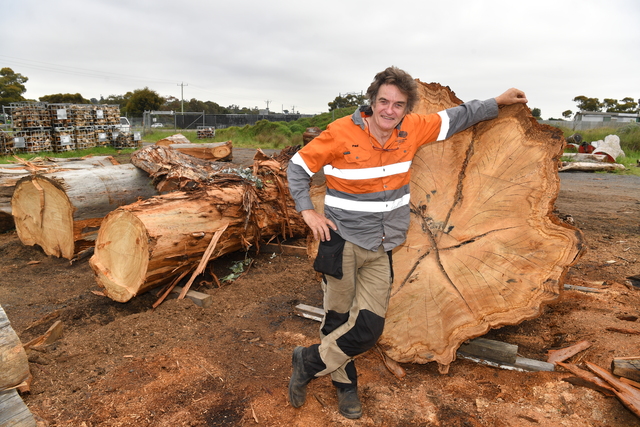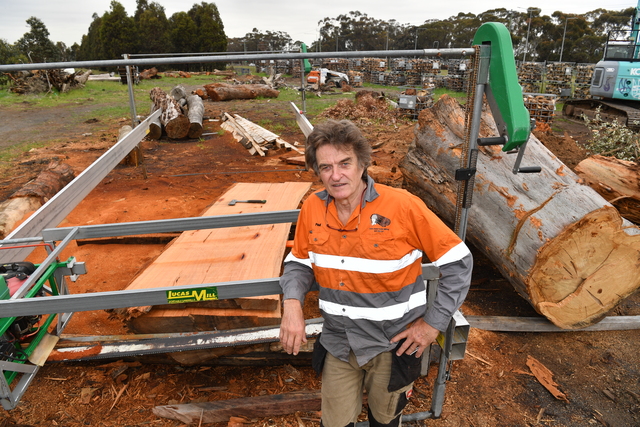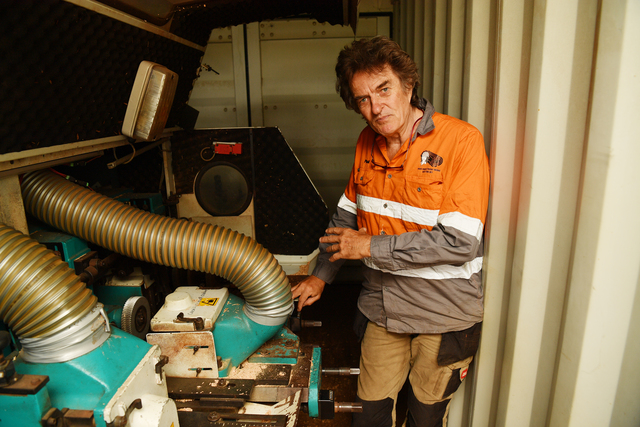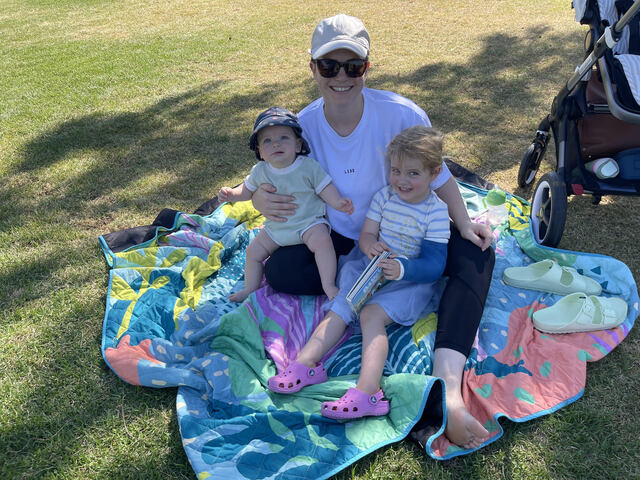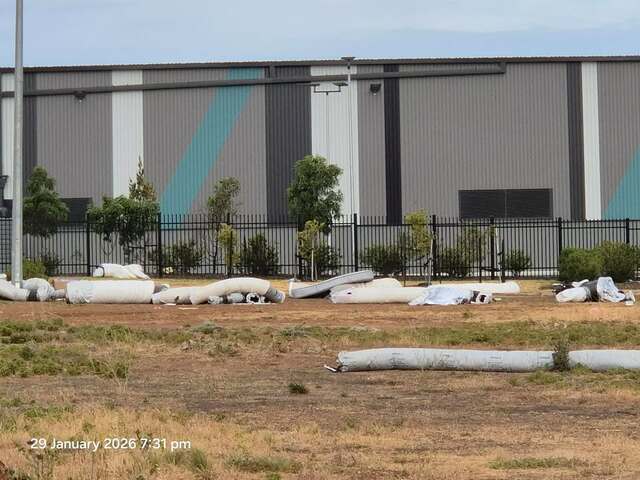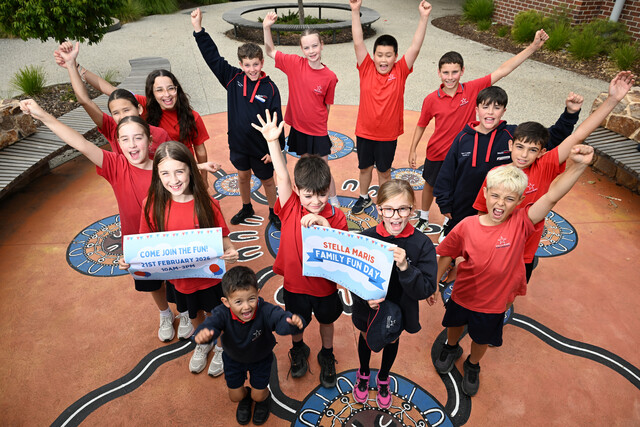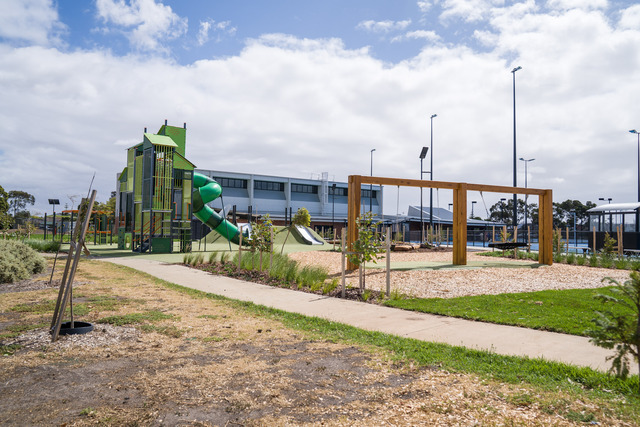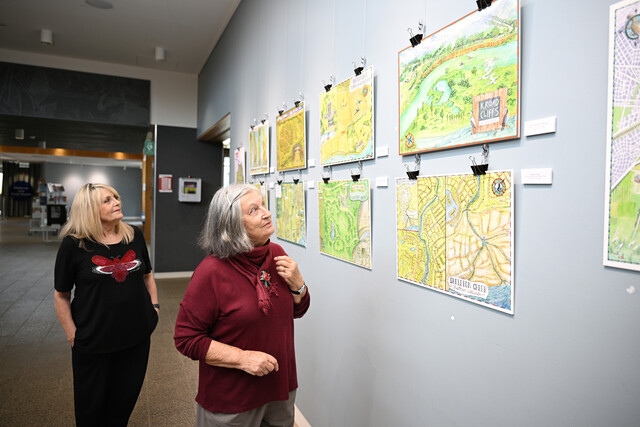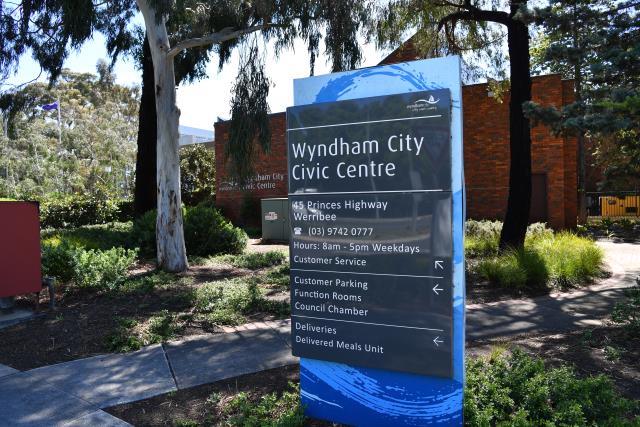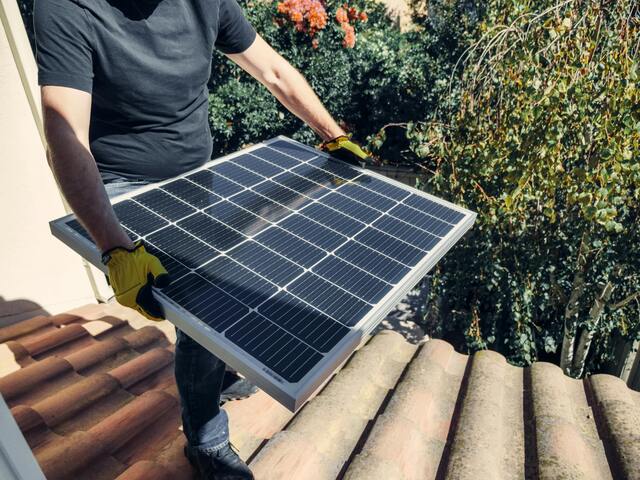Julia’s Onsite Timber is trailblazing in the world of timber through portable milling and the sustainable repurposing of discarded wood.
Located in the aptly named suburb of Attwood, the newly established mill’s team of arborists and woodsmiths have been utilising a portable mill to transform wood they source into timber products.
The venture’s roots can be traced back to when founder and owner Paul McKay purchased a mill over 10 years ago.
Initially starting as a fun project to save as many urban trees as possible, it soon sprouted into an obsession.
After completing training in mill operation, he mustered up the courage to post an ad on Facebook offering milling services.
The ambition of milling in an urban setting was not without its critics and detractors.
“I was saying that surely we can mill in an urban area and they’re all telling me why you can’t,” Mr McKay said.
Gaining traction and a permit from Hume council, the small operation expanded and his crew grew.
Putting one of his staff through a certificate III in arboriculture, planted a new idea in his mind – becoming qualified as a climbing arborist.
Mr McKay, who actually has a fear of heights, said that “I persisted and persisted, and it’s almost fun these days”.
With jobs ranging from clearing up sites for government infrastructure projects to just freeing people of their unwanted firewood, no two days are the same for Mr McKay and his team.
“It could be climbing trees and taking them down, it could be milling on site, it could be going away for a few days milling farmer’s logs they just want cleared from paddocks,” Mr McKay said.
“There’s a wide variety of tasks and skills that we need too.”
Sourcing trees from all across Melbourne, Mr McKay and his team often find themselves out in the west.
“The trees out in the western suburbs are dryland trees, which generally means that they are durable,” he said.
“We’ve milled a lot out there and there’s some beautiful trees.”
According to Mr McKay, disasters – such as the storms that lashed the Macedon Ranges three years ago, leave no shortage of lingering trees, a phenomenon he referred to as “horizontal forests.”
“Those storms that happened three years ago – we’re still going to sites where people have just got logs and trees everywhere,” Mr McKay said.
Another important aspect of the operation is forecasting potential hazards and disasters – often identifying trees that could pose a risk up to a 100 years into the future.
“We never chop a tree down for timber, it’s always for some other reason and then we turn the rubbish into something, ”Mr McKay said.
The stories of what these former trees become are just as diverse as the reasons they were milled, with furniture, playground equipment and entire house framings being among the creations.
The sustainable model allows it to cater to a market for rarer woods that would otherwise be unattainable for other businesses.
When asked about what he enjoys most about the operation, Mr McKay pointed to its novelty.
“No one has really done this before- It’s a big experiment for us.”

